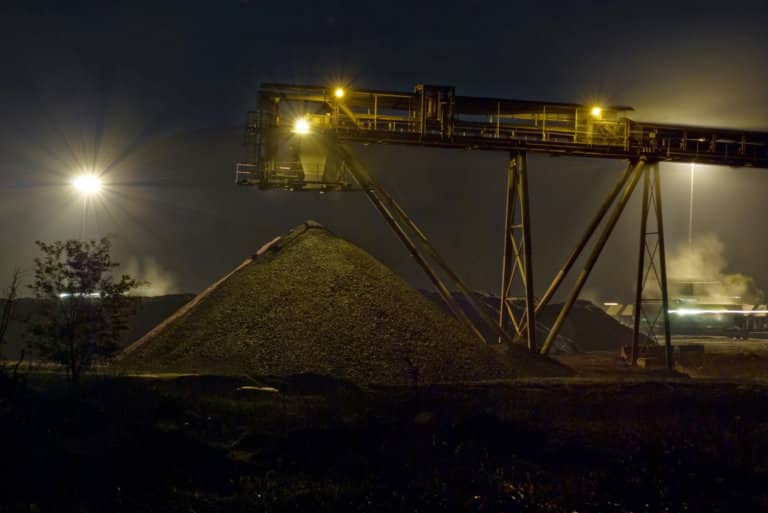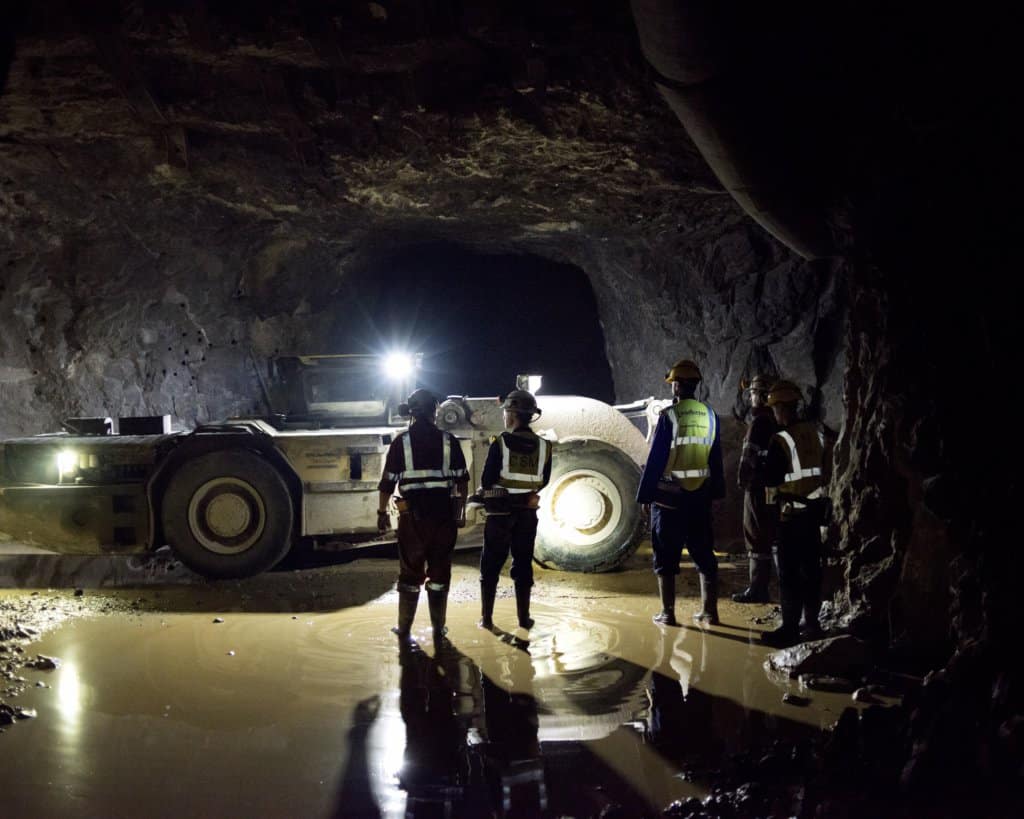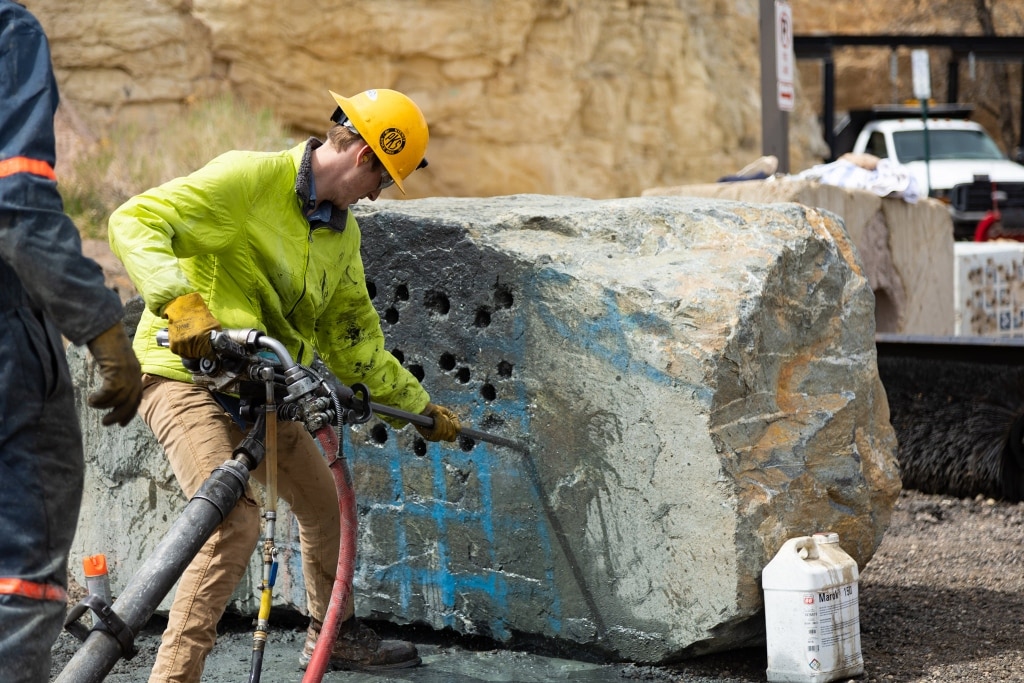
Mining is said to be a double-edged sword. While it creates many jobs for local communities, it can also negatively affect human health and the environment. So how can future mining engineers be prepared for such pressing challenges? How can we extract and produce in large amounts but in ways much less destructive than how mining has been done for decades?
Some universities around the world are responding to the green movement and are offering up-to-date mining engineering programmes that tackle these questions — and prepare graduates to lead the industry with both their skills and knowledge.
Here are four universities making it their mission to produce graduates who can and care about making the mining industry more sustainable:
Camborne School of Mines

Camborne School of Mines Students. Source: Camborne School of Mines
Camborne School of Mines at the University of Exeter is a combined geoscience and mining department. Located in Cornwall in the far South West of the UK, the university’s strategic location makes it an excellent environment to live and study and is an outstanding natural laboratory that complements their teaching and research facilities.
With the university’s international reputation for research and teaching, it’s no surprise how the University of Exeter is a member of the prestigious Russell Group. Ranked 11th in the world for Mineral and Mining Engineering (QS World University Rankings by Subject 2022), the Camborne School of Mines delivers programmes that help students grasp a strong understanding and management of the Earth’s natural processes, resources and the environment.
Its range of MSc postgraduate programmes covers the entire mining value chain from exploration, through operations to closure and the environment. They include the MSc Exploration Geology, MSc Mining Geology, MSc Mining Engineering, MSc Minerals Processing and MSc Mining Environmental Management.
Students follow an up-to-date curriculum delivered by expert faculty members who have done international-recognised scientific research. This means students have the chance to discuss the latest discoveries and technologies and eventually engage in their own research project.
Coupled with the university’s top-notch research facilities such as geochemical and mineralogical labs, surveying equipment, GIS software, a materials engineering and physical separation lab, students get exposure to plenty of hands-on learning experiences. This further encourages students to lead high-impact research that tackle leading issues and develop solutions within the mining life cycle industry. To learn more about Camborne School of Mines, click here.
The Norman B. Keevil Institute of Mining Engineering

Source: University of British Columbia/Facebook
At University of British Columbia (UBC), interdisciplinary mining engineering programmes at the undergraduate and postgraduate levels are offered at Norman B. Keevil Institute of Mining Engineering. Students will be exposed to topics such as rock mechanics, surface and underground mine design and mine waste management.
Experiential learning is abundant, regardless of your level of study. Here, mining engineering students will greatly benefit from cutting-edge technology at top-notch research facilities such as Coal and Mineral Processing Laboratory (CMPL) and Frank Forward Building.
Thanks to those facilities, high-impact research is being carried out even on campus grounds. Imagine being a part of improving water security in mining regions or understanding how surface particles affect tailings disposal, and water treatment, recovery, and recycling. Students can be a part of that and take on their own capstone projects in their fourth year.
What’s more, undergraduate students have the chance to participate in hands-on learning through co-op opportunities and the UBC Underground Mine Rescue Team. The Rescue team often attends competitions and outsources training from industry professionals to uphold industry standards in emergency response skills.
University of Queensland

Source: University of Queensland/Facebook
The University of Queensland (UQ)’s School of Mechanical and Mining Engineering programmes stand out as they let students get two qualifications in less time and increase their career options. These dual-degree programmes such as bachelor’s in engineering and arts and bachelor’s of engineering and biotechnology let students develop relevant skill sets that’ll equip them for various career opportunities in the life sciences sector.
Here, all undergraduate and postgraduate engineering students are expected to complete 450 hours of Engineering Professional Practice in order to graduate. This is compliant with the accrediting body, Engineers Australia, that requires engineering graduates to have exposure to professional practice.
The university also actively supports female students through the Women in Engineering programme. It was born out of an industry partnership with members of Rio Tinto, and members of the Australian Power Institute (API) and the Australian Petroleum Production and Exploration Association (APPEA).
The goal? To be a catalyst in increasing female participation in the engineering workforce and demonstrating to female students the satisfaction of an engineering career.
Colorado School of Mines

Source: Colorado School of Mines/Facebook
The Colorado School of Mines is on a mission to address the world’s pressing challenges through education and research in engineering, science and business.
The Colorado School of Mines offers both undergraduate and postgraduate programmes in mining engineering. Students learn how to apply theory and principles to tackle industry problems such as hard and soft rock mining or whether the mineral deposit requires surface or underground methods of extraction.
Here, research is conducted in focus areas such as Responsible Mining, Underground Excavation (Tunnelling) and Construction and Rock Fragmentation. The school was awarded US$95 million in research awards for the year 2022 granting students access to state-of-the-art facilities. Some of these facilities include Edgar Experimental Mine, Explosives Research Lab (ERL) and The Tailings Centre.
The school also supports students financially in their pursuit of a graduate degree. Graduate students looking for ways to fund their studies can opt for financial aid, graduate fellowships and even teaching and research assistantships.
*Some of the institutions featured in this article are commercial partners of Study International







